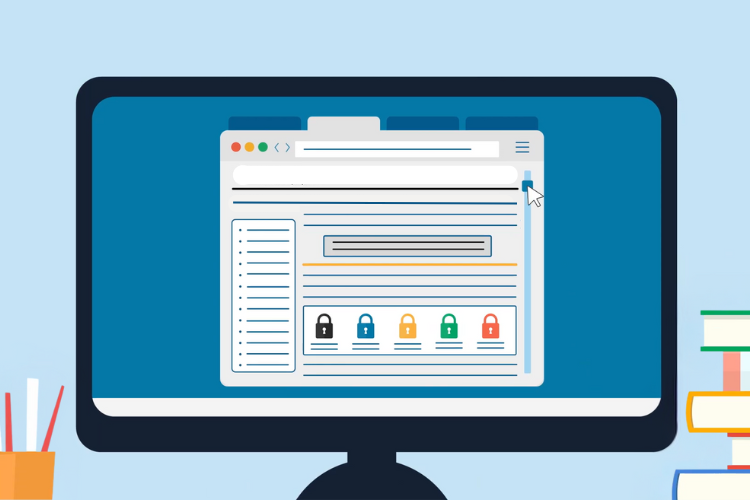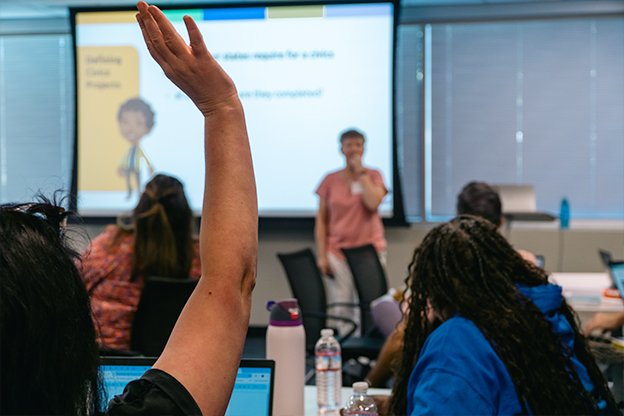Civic Digital Literacy, developed by the Digital Inquiry Group and iCivics, is a collection of nonpartisan, evidence-based resources to help middle and high school students learn how to navigate misinformation, disinformation, and AI-generated content.
CAMBRIDGE, MA [August 26, 2024] – As Election Day nears and Americans are flooded with related online content, iCivics and the Digital Inquiry Group (DIG) have released a collection of resources to equip students with everything they need to know about deciphering the veracity of what they encounter online.
The new Civic Digital Literacy collection is designed to prepare young people to be informed, engaged members of our democracy. It meets an urgent need to make digital literacy a key component of civic education.
These new materials help students better understand how to navigate online sources and to build the digital literacy skills integral to our democracy.
Civic Digital Literacy helps students understand a range of topics, including who’s behind cloaked websites, how to evaluate political claims on social media, and whether online content is clickbait or legitimate.
“In a digital age, civic engagement requires the ability to find credible information online,” DIG’s co-principal Sam Wineburg said. “The internet, however, can be a perilous place to become informed. Social media is a minefield of misinformation where bad actors peddle mistruths. Fortunately, there are evidence-based approaches to teaching people how to better discern online information. The Civic Digital Literacy materials are based on a decade of research by our team at DIG to develop and rigorously evaluate curriculum tools in real classrooms.”
Designed for middle and high school students, Civic Digital Literacy currently has nine lesson plans, ten student-facing videos, and six professional development videos for teachers. It was built with the digital literacy and curriculum expertise of DIG, an independent nonprofit established by the team behind the Stanford History Education Group, and the curriculum and pedagogy expertise of iCivics, the nation’s leading civic education nonprofit. The nonpartisan resources are research- and evidence-based.
“The average young person spends more than eight hours per day online, but even though they are digital natives, that does not mean they have the skills needed to counteract the information overload in which we all live,” iCivics Chief Executive Officer Louise Dubé said. “Teaching young people how to understand the information they receive is critical so they can become informed and engaged participants in our now digital democracy.”
Civic Digital Literacy is a valuable tool for any civics or social studies teacher. The resources are flexible and can be woven into existing curricula or expanded into lessons of their own. The critical thinking skills that Civic Digital Literacy teaches are applicable across many content areas.
Each of Civic Digital Literacy’s videos and lesson plans can be used independently. Lesson plans include step-by-step instructions for teachers and learning objectives that help make the content relevant to students—and guide them through a productive conversation. Each student-facing video features a call-to-action question to encourage students to reflect on and discuss the content.









